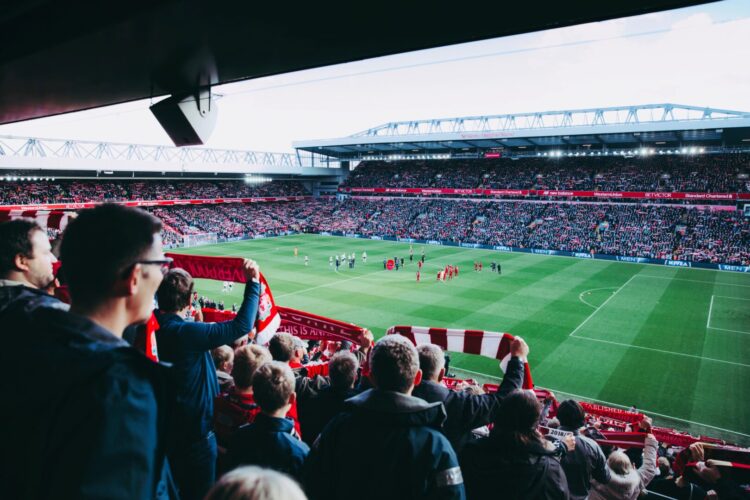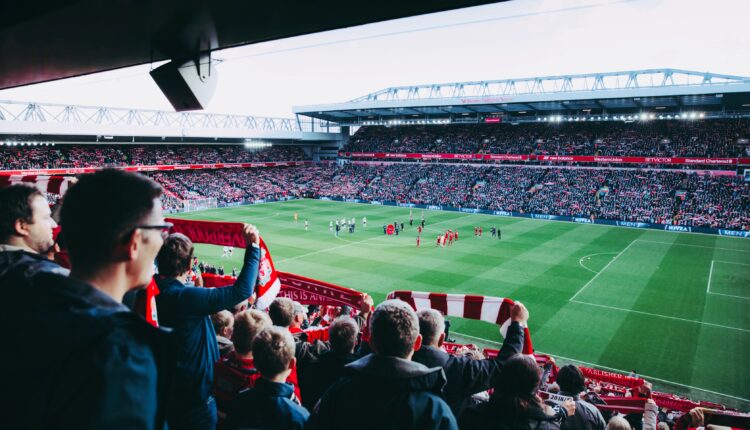In its full-year financial results for the year to May 31, 2020, Liverpool FC suffered big falls in both match day and media revenues due to the COVID-19 pandemic. Tony McDonough reports

Liverpool Football Club is reporting a drop in annual revenue and a pre-tax loss of £46m after being hit by impact of the COVID-19 pandemic.
And the latest financial results only cover the 12-month period to May 31, 2020, so the full impact of the pandemic on the club’s finances is still to be revealed. It has been estimated that club’s losses due to COVID-19 could be as high as £120m.
In its newly filed accounts, Liverpool reveals it generated £490m in revenues during the year, down from record revenues of £533m in the previous year. Media revenues fell £59m to £202m with the Premier League season being extended outside the reporting period.
Matchday revenue was down by £13m to £71m as a result of four fewer Premier League home games and games having to be played behind closed doors. However, Liverpool did see a £29m increase in commercial revenue £217m.
Eight new commercial partnerships were announced in this period, including Cadbury and Iugis. Nivea and Carlsberg also renewed their existing long-term partnerships with the club. LFC Retail experienced a significant increase in growth, with the Premier League champions’ home kit breaking record sales
The club’s international expansion plans also added growth with new retail stores opened in Thailand, Singapore and Vietnam.
Digitally, Liverpool saw a huge growth in its global social media following – up 32% annually, gaining an additional 22m new followers. It remains the most-followed Premier League club on YouTube and is the fastest-growing club on Instagram.
The club’s combined Twitter accounts reached 17.4m followers – a 29% increase and treble the growth rate recorded in the 2018-19 season.
Andy Hughes, Liverpool FC’s managing director, said: “This financial reporting period was up to May 2020, so approaching a year ago now. It does, however, begin to demonstrate the initial financial impact of the pandemic and the significant reductions in key revenue streams.
“We were in a solid financial position prior to the pandemic and since this reporting period we have continued to manage our costs effectively and navigate our way through such an unprecedented period.
“Importantly, what has remained constant throughout the pandemic is the club’s desire to support the local community and those who live in and around Anfield and across the city region.
“We have also worked closely with our city partners and provided unwavering support to the region’s public health departments in their drive to promote the important health messages across the region to help keep local people safe.”
In March Liverpool FC owner Fenway Sports Group has sold a 10% stake in its business to a private investment firm part-owned by the former NBA star LeBron Jame in a £533m deal.
The investment by RedBird Capital Partners values FSG, also the owner of the Boston Red Sox baseball team, at around £5.33bn. The cash injection will allow FSG to press ahead with the £60m redevelopment of Anfield but is unlikely to mean extra transfer funds for Reds manager Jurgen Klopp.
Last week, Liverpool found itself in the middle of a PR disaster when Plans to launch a European Super League (ESL) have collapsed in just 48 hours after Liverpool and five other Premier League rebels all pulled out of the multi-billion pound project.
Liverpool, Manchester United, Manchester City, Chelsea, Arsenal and Tottenham were all part of the JP Morgan-backed plan to form the new league that would have replaced the Champions League.
Spanish sides Atlético Madrid, Real Madrid and Barcelona and the Italian clubs AC Milan, Juventus and Inter Milan had also signed up for the project that was announced on Sunday evening.
But a huge backlash from fans, football authorities, other clubs and senior politicians from all parties have forced the English clubs to perform an urgent u-turn. FSG owner, John W Henry later issued an apology to Liverpool FC fans.

